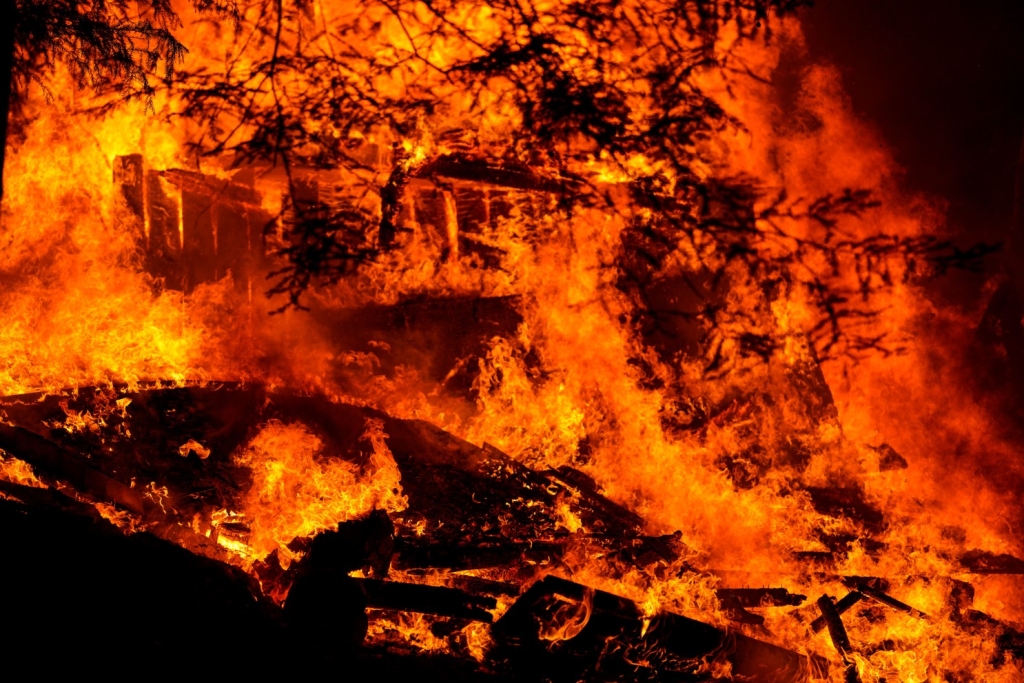The World is Heating Up—But What About Eternity?
https://www.secondcoming.org/is-hell-getting-hotter-climate-change-and-the-divine-perspective/
When you hear the term climate change, your mind probably jumps to melting glaciers, rising sea levels, or scorching summers. Scientists warn us daily that the earth is heating up at an alarming rate. But as Christians, we can’t help but ask deeper questions: what does climate change mean in light of eternity? Could it even relate to the biblical teaching of hell being a place of fire and torment?
From a biblical worldview, this question opens a door to reflect not only on the environment but also on eternal realities, faith, hope, and the second coming of Jesus Christ. It helps us remember that while the world may grow hotter physically, what matters most is our spiritual destiny. In this article, we’ll explore the background of climate change, biblical perspectives on hell and eternal life, and how God’s grace provides hope no matter how dire the circumstances on earth may seem.
Background: Climate Change in Today’s World
Climate change is no longer a distant threat—it’s happening right now. Heat waves break records, hurricanes intensify, and wildfires rage across continents. According to the latest reports, global temperatures continue to rise due to greenhouse gas emissions. Humanity is feeling the consequences of how we treat creation.
Yet, for Christians, climate change isn’t merely a scientific or political issue—it’s also spiritual. Scripture tells us that “the earth is the Lord’s, and everything in it” (Psalm 24:1). The way we treat God’s creation reflects our stewardship and faithfulness. This leads us to an important thought: if the earth itself can burn under climate pressures, what about the eternal burning of hell?
Understanding Hell from a Biblical Perspective
Many people imagine hell as a place where souls are endlessly tormented in flames. But when we turn to the Bible, we find a more nuanced picture:
- Hell as Destruction, Not Eternal Torment: Jesus often described hell (Gehenna) as the final destruction of the wicked (Matthew 10:28). Instead of endless conscious torture, Scripture paints it as the complete and final end of sin and rebellion.
- Fire as Symbol and Reality: Fire represents God’s judgment, but also His purifying presence. Just as climate change brings destructive fires to the earth, hell represents the consuming fire of God’s justice.
- Sleep at Death: The Bible consistently teaches that when people die, they sleep until the resurrection (Ecclesiastes 9:5, John 11:11–14). No one is burning in hell right now; judgment comes at the second coming of Jesus Christ, not immediately at death.
- The Resurrection and Eternal Life: At the parousia—the second coming of Christ—the righteous will be raised to eternal life, while the wicked face destruction in the lake of fire (Revelation 20:14–15).
Climate Change and the Imagery of Hell
Now let’s connect the dots. While hell is not a place currently burning beneath our feet, climate change does give us a sobering foretaste of what unrestrained destruction looks like:
- Heat as a Reminder of Judgment
Record-breaking heat waves remind us that the world is fragile. If earthly fires can devastate homes and lives, how much more serious is the eternal fire of God’s judgment? - Human Sin and Creation’s Suffering
Paul tells us in Romans 8:22 that “the whole creation has been groaning” under the weight of sin. Climate change is a visible manifestation of humanity’s broken stewardship. Hell is the ultimate consequence of sin if left unchecked. - God is Love—Even in Judgment
The Bible reminds us repeatedly that God is love (1 John 4:8). His desire is not for anyone to perish but for all to find eternal life through grace and faith (John 3:16). Climate change may frighten us, but it also pushes us back to the arms of our Creator, where true hope is found.
Main Arguments: Lessons from Climate Change About Eternity
- Climate Change Teaches Us Urgency
Just as climate experts warn of a “point of no return,” the Bible warns that there is a day of judgment. Today is the day of salvation (2 Corinthians 6:2). We cannot afford to wait until it’s too late.
- Hell Is Hotter Than Earthly Fires
As destructive as wildfires and rising temperatures are, they pale in comparison to the consuming fire described in Scripture. The imagery of hell challenges us to take eternal matters seriously.
- Faith Brings Hope in a Troubled World
Climate change often brings despair—but Christians live by faith, not fear. Our hope rests not in politicians or policies, but in the second coming of Jesus Christ. At His parousia, He will restore creation, wipe away every tear, and make all things new (Revelation 21:4–5).
- Grace Is Our Lifeline
God’s grace offers us deliverance from both earthly fears and eternal destruction. Through Jesus’ death and resurrection, we are promised eternal life if we place our faith in Him.
Practical Tips: Living Faithfully in a Heating World
- Be a Good Steward of Creation
Care for the environment as an act of worship. Recycle, conserve energy, and support sustainable practices. Stewardship reflects gratitude to God for His creation. - Focus on Eternal Life, Not Just Earthly Comfort
Climate change may threaten temporary comfort, but eternal life in Christ offers everlasting peace. Keep your eyes on the bigger picture. - Cultivate Hope Through Prayer and Scripture
When headlines feel overwhelming, turn to God’s Word. Meditate on promises of resurrection, hope, and grace. Remember that God is love, even in the darkest times. - Share the Gospel with Urgency
Just as scientists warn about climate tipping points, Christians are called to warn about eternal consequences. Share the good news of Jesus Christ with compassion and urgency.
Conclusion: The World’s Heat vs. Eternal Realities
Climate change is a wake-up call. It teaches us that life on this earth is fragile, fleeting, and in desperate need of redemption. While the world grows hotter, we must remember that hell—understood as the final destruction of sin—represents a far greater reality. But the good news is that through grace, faith, and the second coming of Jesus Christ, eternal life is offered freely to all.
Yes, climate change may make earth hotter, but God’s love assures us that hell will not be the end for those who trust Him. Instead, we look forward with hope to the resurrection, the restoration of creation, and everlasting life in the presence of our Savior.
In the end, climate change is not just about science or politics—it’s about reminding us that time is short, eternity is real, and God’s love is greater than both the heat of earth and the fire of hell.






